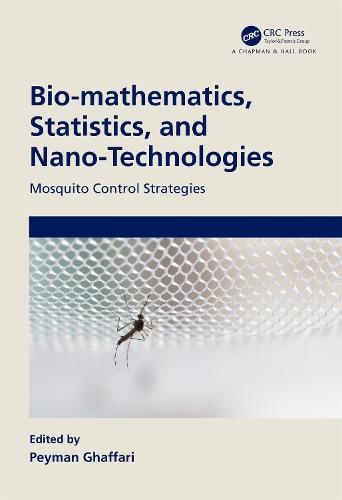Full Product Details
Author: Peyman Ghaffari
Publisher: Taylor & Francis Ltd
Imprint: Chapman & Hall/CRC
Weight: 0.920kg
ISBN: 9780367477004
ISBN 10: 0367477009
Pages: 338
Publication Date: 02 August 2023
Audience:
College/higher education
,
Tertiary & Higher Education
Format: Hardback
Publisher's Status: Active
Availability: In Print

This item will be ordered in for you from one of our suppliers. Upon receipt, we will promptly dispatch it out to you. For in store availability, please contact us.
Reviews
I am delighted to see the outputs of this European Union funded collaborative effort in this engaging book format, that is well targeted for both entomology students and vector control practitioners and demonstrates to those across a range of other disciplines how they might engage productively in the debate on how we evolve insect control over the next decades. -Professor Janet Hemingway, from the Foreword
"""I am delighted to see the outputs of this European Union funded collaborative effort in this engaging book format, that is well targeted for both entomology students and vector control practitioners and demonstrates to those across a range of other disciplines how they might engage productively in the debate on how we evolve insect control over the next decades."" —Professor Janet Hemingway, from the Foreword"
Author Information
Dr Peyman Ghaffari received his Ph.D. in Mathematical-Physics (Non-linear Dynamics and Complex Systems) at Imperial College (London) 1997. He also received his M.S. (German Diploma in Physics) 1993 in Theoretical Plasma Physics at University of Düsseldorf (Germany). After completing his PhD at Imperial College, he worked as an industrial consultant in Germany and UAE for 12 years focusing on establishing Joint-Ventures between International companies wanting to penetrate the Middle Eastern and European markets. In 2006 Dr. Ghaffari returned to academia as a visiting/associate scientist at Imperial College, parallel to his consultancy. In 2007 he co-founded the ""Complexity and Interdisciplinary Research Centre (CIRC)"" at Imperial College providing a platform to transmit the ideas of ""Complexity Research"" into Industry. Since March 2010 until Dec 2018, he has worked at the University of Lisbon in the Biomathematics and Statistics Group and has participated in several scientific projects resulting in associated scientific articles. Since 2020 he is continuing his research as an associate researcher at CIDMA (University of Aveiro). In June 2017 he won the prestigious EU- COST Grant (CA16227) as proposal writer (estimates for 4 years ca. 700.000 Euro). Since Sept. 2017 he has been the Chair of this Action (www.imaac.eu) with around 100 members in around 35 countries involved. He also founded a yearly Training School (""International Training School on Optimal Control Theory and Mosquito Control Strategies"") in 2018 and a yearly conference in 2019 on Political Decision Making and Vector-Borne Diseases aiming to bring political decision makers and scientists together. Dr. Ghaffari is working now on application of Optimal Control Theory on deterministic and stochastic epidemiological models. Other scientific interests include Complex Systems, Self-Organization, Fractional Derivatives, Neuronal Networks and Industrial Mathematics.




